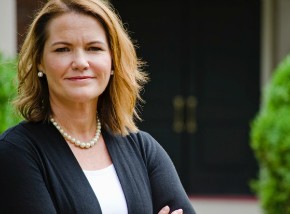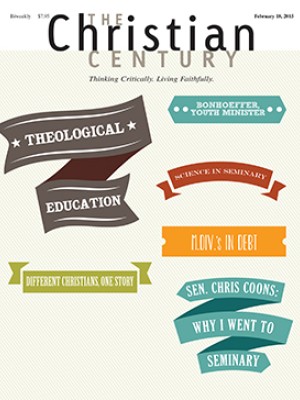The Layman, critical Presbyterian voice, ceases print publication

The newspaper published by the Presbyterian Lay Committee, The Layman, ceased printing at the end of 2014, but the PLC will continue to provide information and resources online and plans to increase its social media presence.
The shift, which came as part of a strategic planning process, includes “refocusing on the priesthood of all believers,” said Carmen Fowler LaBerge, committee president, with “the desire to help laypeople live out the Christian faith in every aspect of their life, especially in their work.”
More than 90,000 people received the final print edition. The newspaper, a prominent conservative voice in the Presbyterian Church (U.S.A.), had no subscribers or advertisers. Donations from individuals and congregations are its sole source of income.
Read our latest issue or browse back issues.
The committee will continue to send print material to its 10,000 donors.
“It’s not going to look like The Layman has historically looked,” LaBerge said. “The cost of that particular presentation doesn’t make a whole lot of sense in terms of staff investment and energy.”
The PLC has been offering news online, for free, with a small fraction of articles making it into the print edition, she said. In recent years, the PLC has published print and online resources on church property law for congregations leaving the PCUSA.
“The constituency of The Layman has also changed pretty dramatically,” she said. A third of its readers are affiliated with other Presbyterian denominations, such the Covenanted Order of Evangelical Presbyterians.
LaBerge foresees that more congregations will affiliate with other denominations and that “there will be disaffected people who remain in the PCUSA long-term . . . who do not agree with the choices, standards, positions of the PCUSA. They will need a collective presence of some kind.”
The PLC will provide that presence. Its other role will be in activities such as church planting, she said. However, the PLC is not changing its stances, such as opposition to same-sex marriage.
“I think people will be surprised that the Lay Committee isn’t either going away or just going to be hair-on-fire, screaming mad about everything,” LaBerge said.
The PLC began in 1965 with a group of lay leaders who objected to the Presbyterian confession eventually approved by the United Presbyterian Church. It began publishing The Layman in 1968.
Robert Bohl recalls that when he was PCUSA moderator in 1994, the General Assembly called for a special committee to meet with the PLC in an attempt at reconciliation. At the end of the year, after half a dozen meetings, Bohl recommended ceasing the effort.
“You can’t be reconciled with someone who doesn’t want to be reconciled,” he said. “We all are improved by having authentic critics, but their type of journalism was not constructive.”
Jack Haberer, pastor of Vanderbilt Presbyterian Church in Naples, Florida, and former editor of the independent magazine the Presbyterian Outlook, said The Layman sometimes saw “denominational leaders as enemies to be thwarted. The hard, critical ad hominems that they’ve done have from my perspective often either exaggerated or simply misrepresented those they have criticized.”
He noted, though, that “under Carmen’s leadership that tone has softened markedly.”
He said that as a pastor he would consider sharing resources from the PLC with congregants.
“The biggest point of difference between me and the Lay Committee is that I totally oppose churches leaving the denomination,” he said. “The world knows we’re disciples by the way we love one another, not by the way we separate and fight.” —Christian Century







